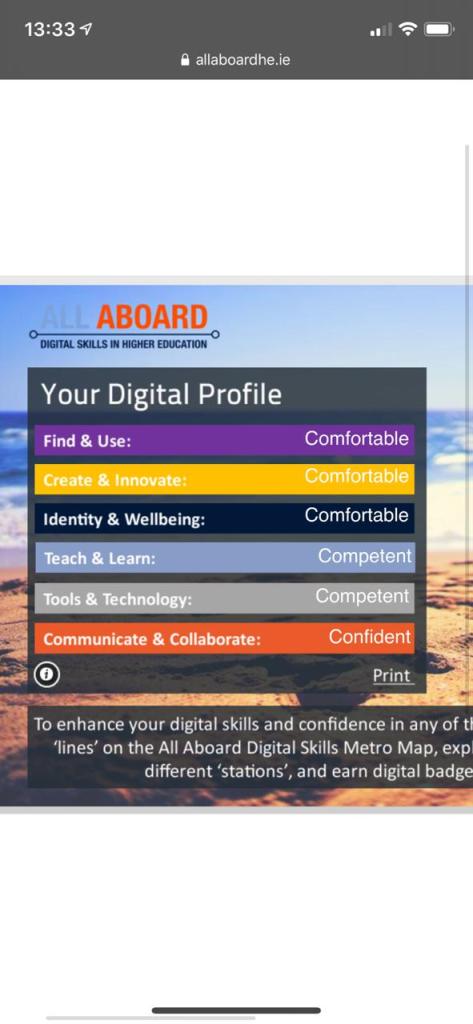The day and age we live in is perhaps the most interconnected period of human existence; partially thanks to a recent multidimensional transformation caused by the rise of globalization and development of the internet. This transformation has led to the compression of space and time, and caused individuals to merge closer than ever before, what scholars often coin as “super-relations”. Although in recent history there has been a simultaneous solidification of state borders thanks to the rise of nationalism, ethnocentrism, and other self-promoting concepts; it is no longer possible to think of oneself as simply a citizen of a state, but this “mega internationalization” has caused us to drift closer to each other, where individuals are similar to Lego pieces put together to create a grand object, each one dependent on the others existence to maintain this structure.
What the campus conversation and articles do is that they highlight the grand idea that digital literacy is in fact a critical tool that needs to be advocated and incorporated into university curriculum, until it eventually becomes as normalized as learning a language or fundamental subject like history, sociology, etc. After the conversation we attended on Digital Literacy, I inquisitively started asking friends and acquaintances if they knew anything about Digital Literacy and I was surprised that many did not even know what that term meant. Ironically enough, we all use things that incorporate digital literacy extensively on a daily basis, thus it is only logical enough to learn about it as much as possible; especially that there is much we do not understand on the internet that may lead many astray like proposed by Maha Bali in her article Critical Digital Citizenship: Promoting Empathy and Social Justice Online. Bali continues to argue how she views digital literacy as having great potential for both promoting social justice and empathy in societies, which frankly enough I agree with. The internet for example is literally capable of mobilizing an entire country, or perhaps even the entire world; and we saw that clearly in the Arab Awakening when the internet was a vital tool in continuing the flow of information until the state realized how important it was and decided to censor many international websites and eventually shut it down. A proficiency in digital literacy and the understanding of the dynamics behind this concept helps people use these digital tools in the most accurate manner which brings justice when needed, and definitely increases the amounts of witnesses or perspectives we often need to assemble a clearer picture. Regarding the idea of empathy, one of my favorite quotes by Mark Twain in his book The Innocents Abroad (1869) says: “Travel is fatal to prejudice, bigotry, and narrow-mindedness, and many of our people need it sorely on these accounts. Broad, wholesome, charitable views of men and things cannot be acquired by vegetating in one little corner of the earth all one’s lifetime.” To me, the internet is the closest possible thing to travelling because it connects us to different people all around the world that give us access to new cultures and religions, and obviously an endless stream of information; precisely what we acquire when we travel.
The second article titled Knowing the Difference Between Digital Skills and Digital Literacies, and Teaching Both also written by Bali tackles an issue what I believe is prominent in Egyptian education, and that is the idea of only learning the basics (or memorization) rather than delving into the topic and actually understanding the essence of it. What Bali suggests is simply that students must understand digital literacy rather than learn it, because they are not simply learning it to be questioned in a test, but it is rather something that will help them throughout their life and an essential tool in our day and age. Teachers should focus on simulating real life experiences and synthesize knowledge within this simulation so that students can create a link between the material being taught and their lives, which makes them understand the importance of this information. The purpose of that is to allow the student to develop critical judgement and analysis that would help him in navigating throughout these digital tools and make best use out of it.
Below is a screenshot of my Digital Confidence Profile. To be honest I was not surprised by the answers I got; in terms of communicate and collaborate I was confident in because it is the digital tool I use most often on a daily basis. The first two profiles are a reflection of my academic background and thus it is evident that I am comfortable in them as I am a student, but not confident because there is still much to learn. Social media does not effect my identity and well being to the extent that it damages my self-image and thus it was also comfortable, but we must also not be biased and realize that it does affect us to an extent. Finally, the last two were more oriented towards people who primarily teach digital literacies and therefore I was only competent.
